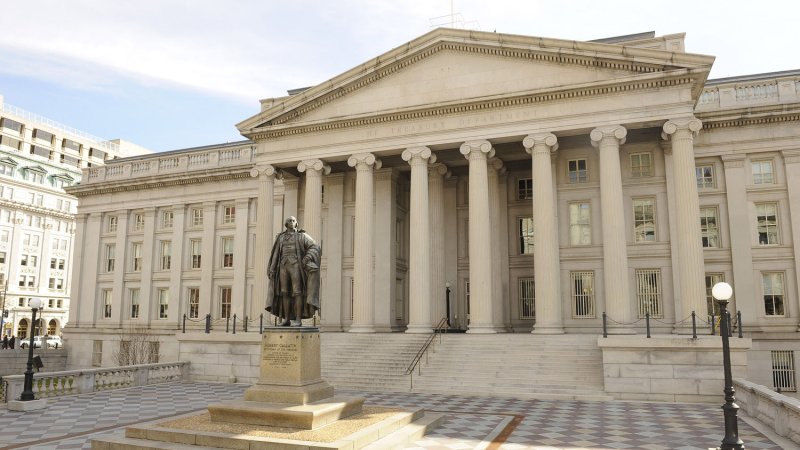The Treasury Department is seen in Washington on February 20, 2011. UPI/Roger L. Wollenberg |
License Photo
WASHINGTON, Jan. 28 (UPI) -- A government watchdog said the U.S. Treasury Department signed off on big pay increases at bailout firms in 2012, ignoring taxpayers' interests.
"We expect Treasury to look out for taxpayers who funded the bailout of these companies by holding the line on excessive pay," said Christy Romero, the inspector general for the Troubled Asset Relief Program that was used to bail out the nation's financial industry, as well as select firms, such as General Motors, Chrysler and American Insurance Group Inc.
"Treasury cannot look out for taxpayers' interests if it continues to rely to a great extent on the pay proposed by companies that have historically pushed back on pay limits."
The Washington Post reported Monday the Treasury Department claims it did not break any laws or turn its back on taxpayers as it approved $6.2 million in raises for 18 executives at GM, Ally Financial and AIG in 2012.
The department approved a raise of $1 million for one AIG executive. Another, an executive at AIG's Residential Capital that filed for bankruptcy, was allowed a $200,000 raise in what the inspector general's report said was a raise approval process that deferred to the requests made by the companies and ignored pay increases based on merit, the Post said.
The report also says that 68 of 69 executives at the three companies took home pay packages of $2 million or more.
Combined, the top 16 executives at the companies took home $100 million, The New York Times reported.
"In 2012, these three TARP companies convinced Treasury to roll back its guidelines by approving multimillion-dollar pay packages, high cash salaries, huge pay raises and removing compensation tied to meeting performance metrics," Romer said.
The Treasury Department's acting pay czar, Patricia Geoghegan, said the inspector general's audit includes many inadequacies and faulty conclusions.
Huge compensation packages became a sore point after the financial crisis of 2008 and throughout the subsequent bailout of the financial sector. Billions of dollars of taxpayer funds were used to bail out companies that blundered into and, in some ways, created the financial crisis.
Symbolic of the compensation controversy, AIG was severely criticized for awarding $168 million in bonus pay in 2009 to employees of the division that sustained huge losses in the market, destabilizing the insurance giant and putting the financial system at risk.
Kenneth Feinberg was appointed to serve as the department's so-called pay czar to monitor excessive pay at bailed-out firms. His strategy was to limit cash salaries to $500,000 and force companies to award deferred shares to make up the difference.
Feinberg stepped down in 2010. In 2012, the report says, Geoghegan allowed 23 exceptions to Feinberg's guidelines, four times the number of exceptions allowed in 2009.










